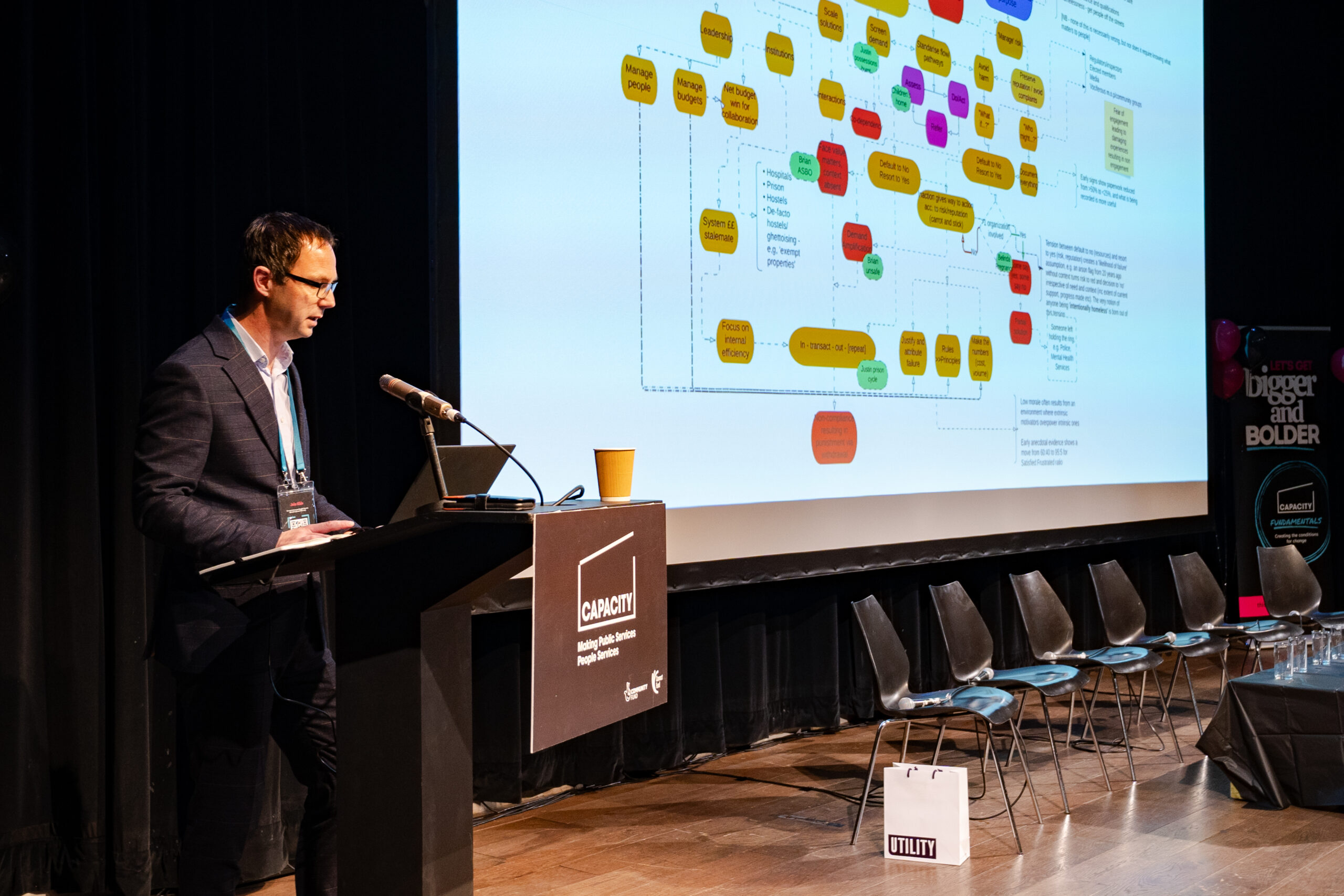Over the last year we’ve brought together leaders, thinkers and doers to talk about the future of public services. A space for really honest conversations between local government, the NHS, third sector, funders and people working in our communities about how we make public services work better in the Liverpool City Region.
As Director of Changing Futures Northumbria and Public Service Reform at Gateshead Council, Mark’s pioneering and thoughtful approach ‘The Liberated Method’ has become a byword for innovation in public service reform in the UK.
Mark talked about three things: learning from his experience in Gateshead; stoking curiosity in the room and action ‘what we can do on Monday?’. His Alice Through the Looking Glass analogy for public services was perceptive and profound – an alternative reality ‘where things that are broken are construed as good and where really great things are construed as broken’.
It’s hard to fully capture the powerful insights and impact of Mark’s keynote. This was a talk that energised the room.
What’s inescapable from Mark’s keynote and Gateshead’s approach to public reform is the significance of building trust and relationships with people who rely on public services. To empathise, understand, build a sense of agency and control and, maybe most importantly, to see people’s real potential when they’re going through a tough time.
One of those people was Brian. Mark shared some of Brian’s story. It was a hard listen and for Mark’s team a hard lesson.
Brian was in crisis – no connections, no network, no hope. He was alcohol dependent and averaging a visit to A&E every 1.5 days. He was offending and had a history of arrests and imprisonment.
Brian had over 3,000 interactions with services in 14 years and yet remained fundamentally misunderstood. Mark’s team estimated £2 million worth of public services had been spent mostly on the health and criminal justice systems. Services had failed him for 14 years.
Today Brian is in recovery, living in new accommodation, building a network and community and his reliance on public services is reducing – just 7 A&E visits in the last 12 months. That’s the Liberated Method in action. It was a powerful and urgent reminder of the life-changing work that Mark and his team are doing.
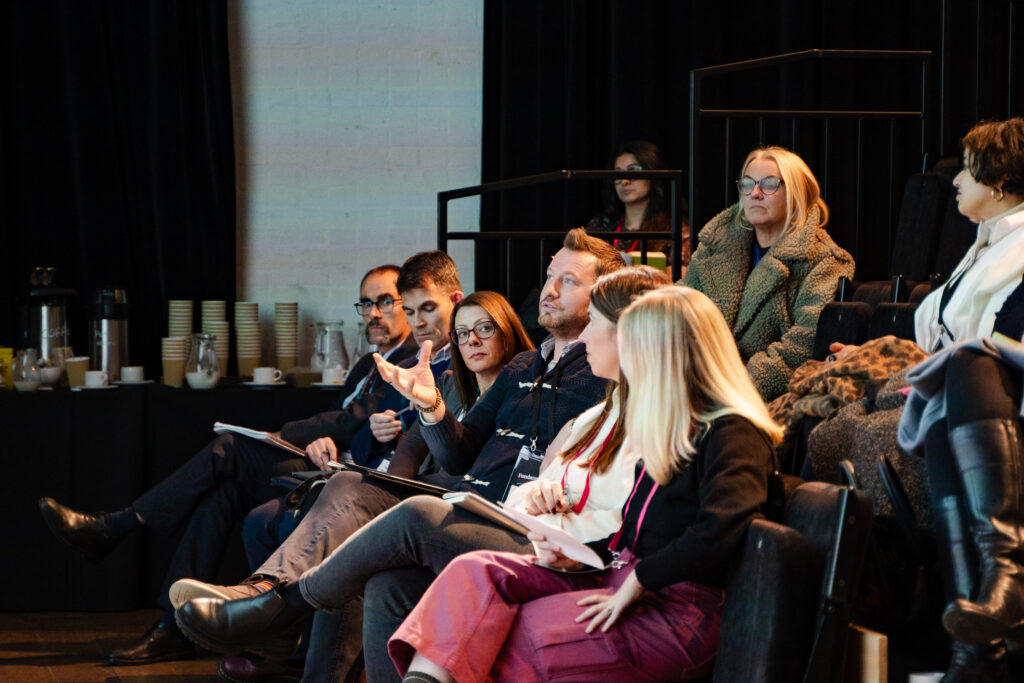

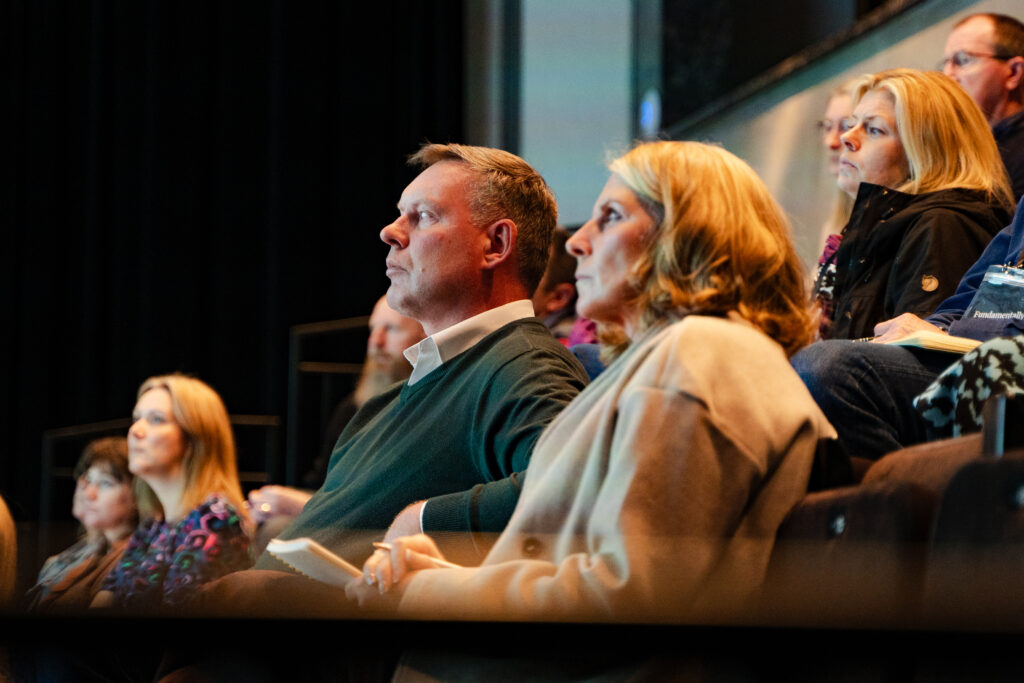
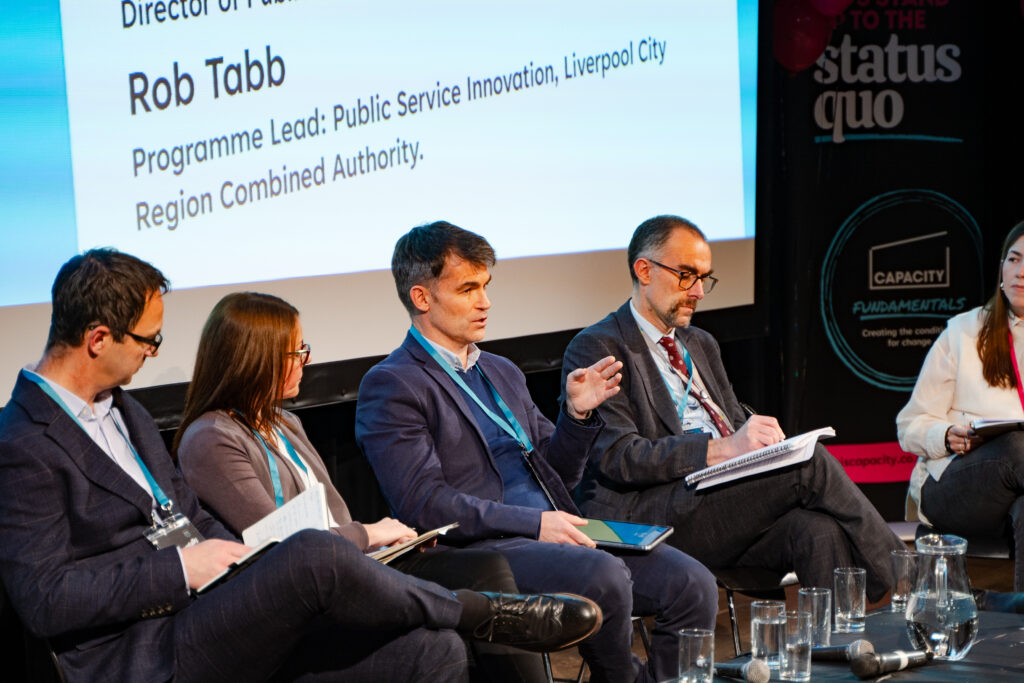
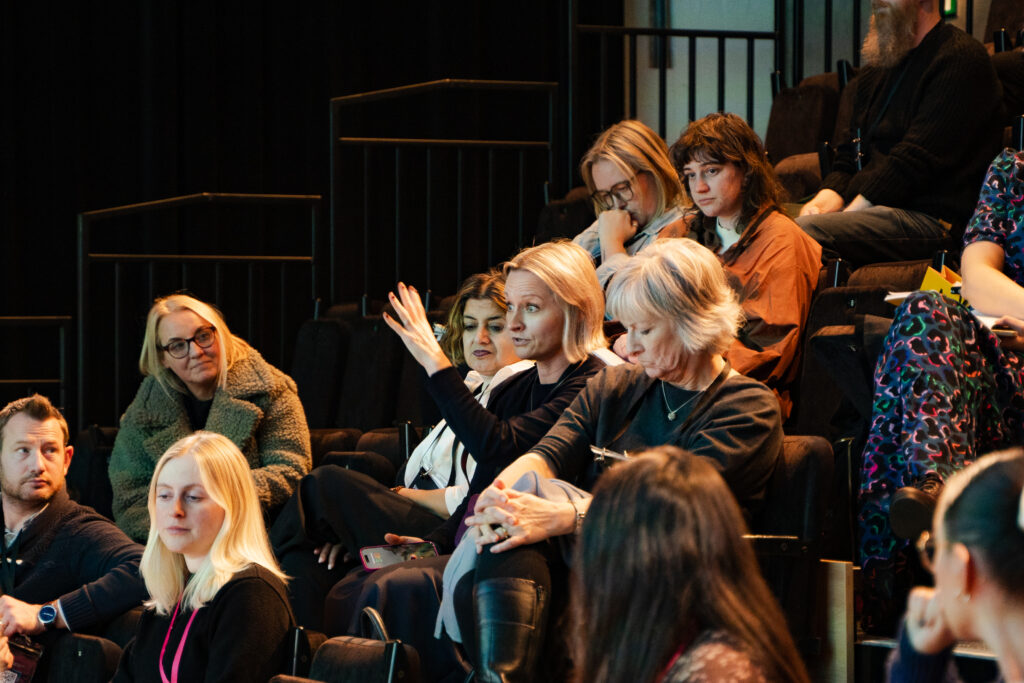
Reflections
Innovation in action
After Mark’s keynote, Emma Lord, Capacity Director, hosted an expert panel with Mark Smith, Gillian Halliwell (Head of Regional Funding, The National Lottery Community Fund), Rob Tabb (Programme Lead Public Service Innovation, LCR Combined Authority) and Kevin Peacock (Chief Executive, Options for Supported Living).
The panel explored some of the must haves for public service innovation and the vision for the region’s Office for Public Service Innovation (OPSI). Some big themes emerged.
Promote power devolution and localised decision-making
Funding pilot programs that give teams and communities more control over service design and delivery is essential to effective public service reform. That means giving delivery organisations a seat around the table as partners rather than putting them at arm’s length – ‘leaders need to be clearing the runway rather than telling the pilot how to navigate around things’.
Share learning and insights between places/regions
A relatively small number of people consume a large amount of resources. The panel discussed how we might adapt Gateshead’s methodology to identify the people who rely on public services the most in Liverpool City Region. To really understand their story and learn what we can do to support them.
Projects that build relational capacity
LCR needs projects that prioritise close, regular engagement with communities. Less of the top down, paternalistic approach and more support for training teams in relational, empathetic, and person-centred approaches.
Support innovation incubators with ‘air cover’
If we’re serious about establishing regional innovation, OPSI should be the catalyst for funding to experiment with public service reform models, alongside multi-year, flexible funding for innovative projects.
Develop reflective practices and evaluative learning
We should invest in and embed frameworks that allow public service teams to pause, reflect, and learn continuously. That could be grants for peer-learning, reflection spaces for public service teams or developing resources to help teams embed evaluation into their practices from the outset and in real time – ‘a focus on learning is more productive than a focus on productivity”.
Prioritise headspace for frontline workers
Teams working in our communities need time and resources to step back and innovate. Maybe that’s mini-grants to fund short-term sabbaticals or innovation-focused retreats for teams, structured ‘innovation sprints’ within public service workflows or flexible budgets for getting things done quickly for families e.g. buying a new school uniform. Finding the things that matter to people in the here and now.
Build evidence and shift narratives
Storytelling and creative communications are a feature of Gateshead’s success. The region should be funding research and communications of successful innovative projects and a deep dive into learning when things haven’t gone to plan. And that storytelling should stop stigmatising people as ‘vulnerable, poor, disadvantaged’. We need to work in the language of strengths and potential, not problems.
Final thoughts
Chris Catterall, Capacity’s Chief Executive, brought the event to a close with some reflections.
Public services are changing. And with change comes new possibilities. Possibilities to radically rethink our systems and practice. To shift power to our communities.
That means redesigning public services around people and their lives. Services that put them first, respond to their circumstances and empowers teams working in our communities to use their experience and creativity to do what’s needed, not just what’s available or compliant.
Making the changes necessary to transform our public services won’t be without its challenges. System change is, we believe, still the missing link. Project work doesn’t convert into the long-term, fundamental shift that’s required. That’s beyond any organisation or project and remains a big challenge for organisations rethinking public services.
Devolving power away from top-down bureaucracy isn’t straightforward. It requires a fundamental culture shift and brave leadership. You can feel the difference that brave leadership has made on public service reform in Gateshead.
Over the last five years Mark and his team have shown how ideas that are supposed to be irreconcilable can make a difference to people’s lives – taking time to build relationships and trust, not operating a doom loop of assessment and referral, giving his team the permission and flexibility to make their own decisions, not relying on ‘doing the wrong thing, righter’.
Changing Futures has given us a glimpse into the future of public services. It’s an exciting time for public service reform. LCR Combined Authority’s work to make OPSI a reality is taking shape and momentum is building. And we can see from local projects like Juno and Cradle to Career the rewards for innovation, creativity and collaboration.
One final thought. There’s something special about in-person events. The energy, ideas and questions that fizzed around the room during our panel session was a vivid reminder of why we’ve created Fundamentally Different.
This year’s events have created a movement of public service organisations from across Liverpool City Region. And one thing has come out loud and clear. The need for a space where people delivering public services could talk and share their experiences, frustrations and successes.
Thanks for helping us bring that idea to life. We’ll be doing more of it in 2025.
If you want to find out more about Fundamentally Different or join the movement of committed, creative people ready to lead the change we all want to see in public services, let’s talk. Drop our Director Emma Lord a quick email and we’ll be in touch emma.lord@thisiscapacity.co.uk.

